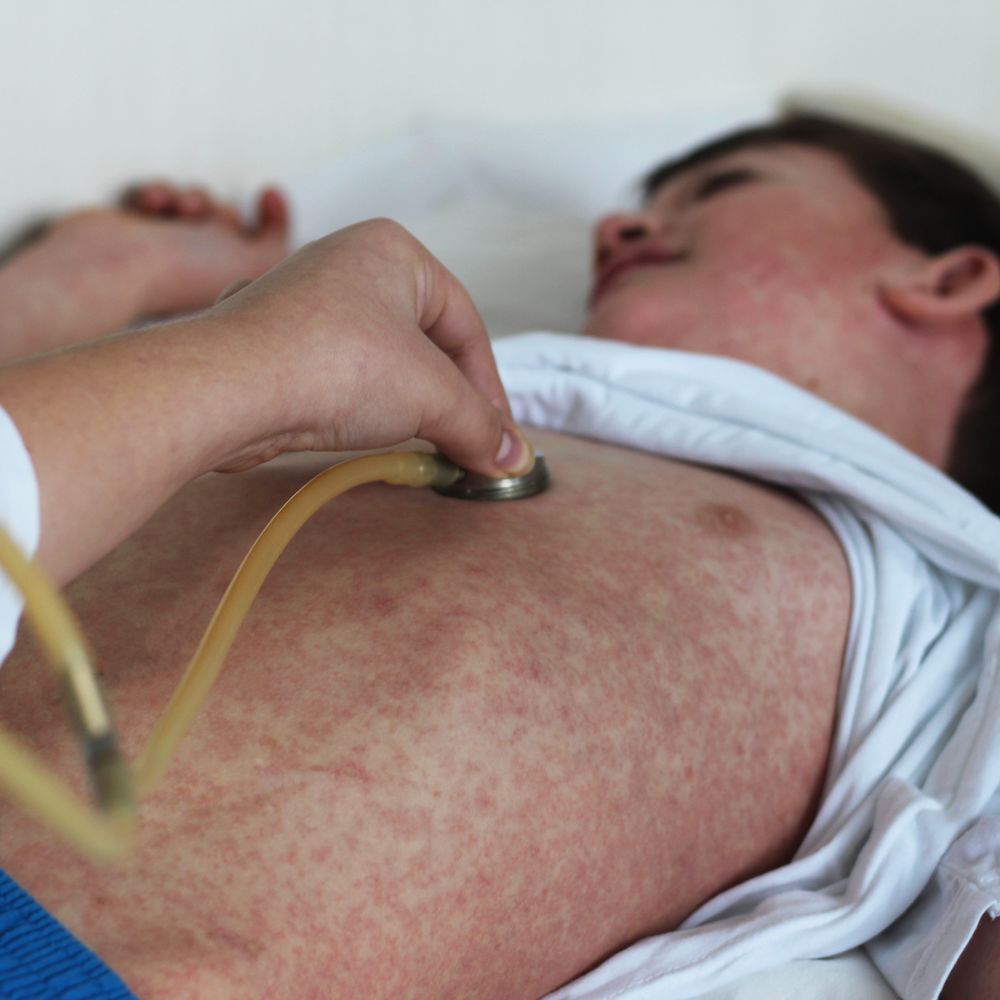The Severity of Measles
Measles is far more than a childhood illness with a rash and fever. It is a highly contagious viral disease that can lead to severe health complications, particularly in infants, the elderly, and individuals with compromised immune systems. Recognizing the serious measles signs early and understanding when to see a doctor is essential for timely intervention, reducing risk of complications, and safeguarding public health.

What Makes Measles Dangerous?
The measles virus can affect multiple organ systems and lead to complications that range from mild to life-threatening. According to the World Health Organization, despite being preventable through vaccination, measles continues to be a leading cause of death among young children globally.
Initial Symptoms: Knowing the Baseline
Typical Early Symptoms Include:
-
High fever (often >101°F or 38.3°C)
-
Runny nose (coryza)
-
Dry, persistent cough
-
Red, watery eyes (conjunctivitis)
-
Koplik spots (small white lesions inside the cheeks)
-
Maculopapular rash that spreads from the face downward
These symptoms typically appear 7–14 days after exposure and may last several days. While these may resolve without complication, it is critical to monitor for signs that indicate the illness is progressing into more dangerous territory.
Measles Complications: What Can Go Wrong?
1. Pneumonia – Most Common Fatal Complication
Pneumonia is the leading cause of measles-related death, particularly in young children. Symptoms to watch for include:
-
Labored or rapid breathing
-
Wheezing or crackling sounds in the lungs
-
Chest pain or tightness
-
Cyanosis (bluish skin or lips)
2. Encephalitis – Brain Inflammation
Although rare (about 1 in 1000 cases), measles-related encephalitis can result in:
-
Severe headache
-
Stiff neck
-
Seizures
-
Lethargy or confusion
-
Coma
This complication can occur weeks after the initial infection, making it one of the more insidious threats.
3. Ear Infections and Hearing Loss
Children with measles may develop otitis media, leading to:
-
Ear pain
-
Difficulty hearing
-
Fluid discharge
Persistent infections can cause permanent hearing damage if not treated promptly.
4. Severe Diarrhea and Dehydration
Measles can cause intense diarrhea and vomiting, especially in children, leading to:
-
Sunken eyes
-
Dry mouth
-
Decreased urination
-
Lethargy
This requires immediate fluid replacement and medical oversight.
5. Subacute Sclerosing Panencephalitis (SSPE)
A rare but fatal degenerative brain condition that occurs years after a measles infection. Symptoms include:
-
Behavioral changes
-
Loss of motor control
-
Seizures
Though extremely rare, SSPE underscores the long-term danger measles can pose even after apparent recovery.
High-Risk Populations: Who Needs Immediate Attention?
| Risk Group | Reason for Increased Risk | Urgency Level |
|---|---|---|
| Infants (<12 months) | Not yet fully vaccinated | Very High |
| Pregnant women | Risk of miscarriage, preterm birth | Very High |
| Elderly (>65 years) | Weak immune systems | High |
| Immunocompromised individuals | Cancer, HIV, transplant patients | Critical |
| Unvaccinated individuals | No immunity protection | High |
Warning Signs That Require Urgent Medical Care
Seek Immediate Medical Attention If:
-
Fever persists beyond 5 days or exceeds 104°F (40°C)
-
The rash spreads rapidly or becomes unusually dark or raised
-
Breathing difficulties, especially wheezing or fast breathing
-
Child becomes unusually sleepy, non-responsive, or shows seizure activity
-
Neck stiffness, severe headache, or altered consciousness
-
Vomiting or diarrhea persists, leading to signs of dehydration
-
Sudden vision changes or severe eye redness
-
Persistent ear pain or fluid discharge from ears
Timeline of Measles Complications
Diagnosis and Monitoring
Measles diagnosis is based on clinical symptoms and confirmed through:
-
Serological testing (IgM antibody detection)
-
RT-PCR for measles RNA in blood or throat swab
Hospitalization is often required for oxygen therapy, IV fluids, and neurological observation in severe cases.
Treatment and Supportive Care
While no antiviral treatment exists specifically for measles, supportive measures are vital:
-
Vitamin A supplementation: shown to reduce severity and mortality
-
Hydration therapy: essential for combating fluid loss
-
Antibiotics: used only if secondary bacterial infections occur
-
Antipyretics: for controlling fever and discomfort
-
Seizure management: in cases of encephalitis
Vaccination Is the Best Prevention
MMR Vaccine Recommendations:
-
First dose: 9–12 months
-
Second dose: 15–18 months or at school entry
-
Over 97% protection after two doses
Vaccination not only protects the individual but helps establish herd immunity, reducing the risk of outbreaks and protecting vulnerable groups.
When to Call Emergency Services
If someone with suspected measles:
-
Becomes unconscious
-
Has seizures
-
Has difficulty breathing
-
Develops sudden weakness or paralysis
-
Shows signs of dehydration with no urination for over 12 hours
Call emergency services immediately. These signs indicate critical complications that cannot wait for outpatient care.
Summary: Acting at the Right Time Saves Lives
| Action Needed | Trigger Symptom | Response |
|---|---|---|
| Call doctor | Fever >5 days, worsening rash | Same day appointment |
| Go to ER | Trouble breathing, seizure, unresponsiveness | Immediate care |
| Monitor at home | Mild fever, cough, no rash yet | Rest, hydration, observation |
Don’t Delay When Measles Symptoms Escalate
Although measles often begins with signs that resemble a common viral illness, it has the potential to escalate quickly into a life-threatening condition. By identifying the red flags early—such as high fever, persistent rash, respiratory distress, or neurological symptoms—we can ensure that proper medical intervention is sought at the right time.
Staying informed, knowing when to see a doctor, and ensuring vaccination compliance are the most effective strategies in minimizing the measles complications and keeping your family and community safe.




